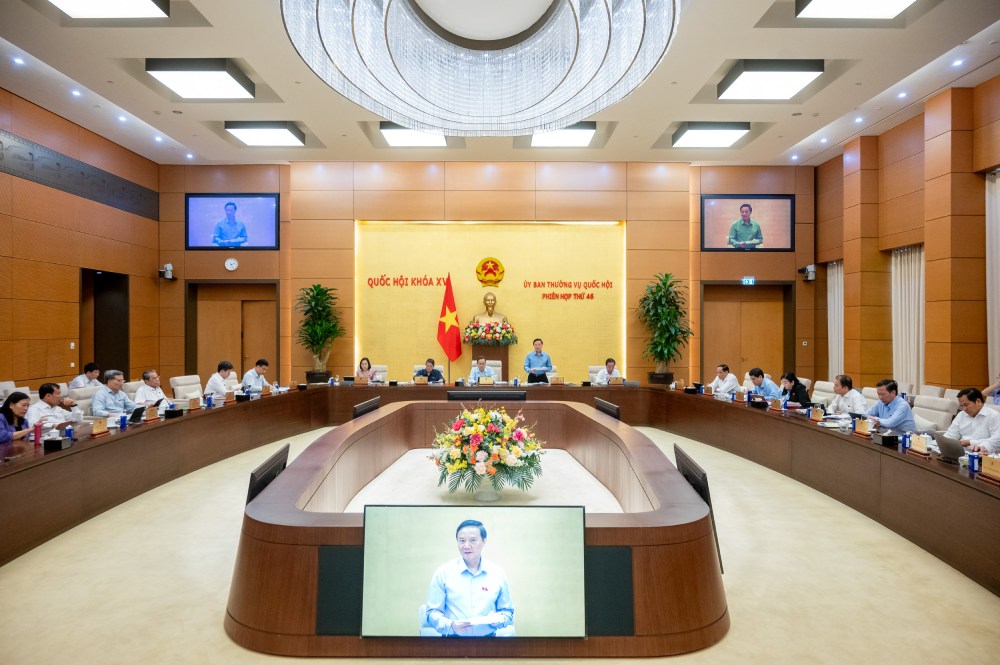On the afternoon of June 3, the National Assembly Standing Committee gave its opinion on the reception, explanation, and revision of the draft Law on Cadres and Civil Servants (amended).
Reporting on the reception, explanation and revision of the draft law, Minister of Home Affairs Pham Thi Thanh Tra said that the draft law has completed regulations on civil servant recruitment.
Accordingly, the condition of having an application is removed to reduce administrative procedures and suit reality. Supplementing regulations to allow signing contracts for outstanding, excellent entrepreneurs, experts, scientists, lawyers, and good lawyers to perform the tasks of leadership and management civil servants.
The draft law has adopted and revised regulations on civil servant assessment. Receive and revise the contents on civil servant assessment in Articles 25, 26 and 27 stipulating the basic contents on principles, authority, content, and methods of assessment and classification of civil servant quality and using the results of assessment and classification of quality.
In particular, it emphasizes the use of assessment results to implement rewards, additional income regimes, bonuses and considering the arrangement to job positions with lower requirements or laying off employees in cases of failure to complete tasks or not meeting task requirements to screen people who do not meet task requirements to leave the apparatus.

Minister Pham Thi Thanh Tra said that currently, agencies, organizations and units have completed the construction and approval of job positions, including content on the corresponding civil servant rank standards.
From July 1, 2025 (when the law takes effect), newly recruited civil servants will be arranged to the job position and ranked accordingly.
However, for civil servants in the political system who have been appointed and salary classified according to civil servant ranks, when switching to implementing civil servant management according to job positions, it will take time for agencies, organizations and units to conduct a general review and arrange civil servants according to the job positions corresponding to the appointed civil servant ranks.
Therefore, the Government has directed the drafting agency to discuss and agree with the National Assembly's Committee on Law and Justice to report to the National Assembly Standing Committee to allow the addition of transitional provisions:
By July 1, 2027, ministries, branches, central and local agencies must complete the arrangement to job positions and rank them according to job positions for civil servants recruited before the effective date of this law under the management scope according to the provisions of this Law in Clause 2, Article 44.
According to the Minister of Home Affairs, some opinions suggested adding the subjects of full-time workers at associations assigned by the Party and the State to the scope of the Law on Cadres and Civil Servants.
Regarding this content, the Government has directed the Ministry of Home Affairs to coordinate with the agency in charge of carefully exchanging and discussing the plans, analyzing advantages and disadvantages of each plan. In which, agreeing to report to the Standing Committee of the National Assembly in the immediate future to keep the scope and object of adjustment such as the 2008 Law on cadres and civil servants.
The draft law stipulates that people working in associations assigned by the Party and the State are subject to the provisions of the Law on Cadres, Civil Servants, relevant laws and regulations of competent authorities (Clause 2, Article 43).
At the same time, people working at the Association are eligible to be accepted as civil servants according to Government regulations, so they should ensure the rights of those working at the Association.











